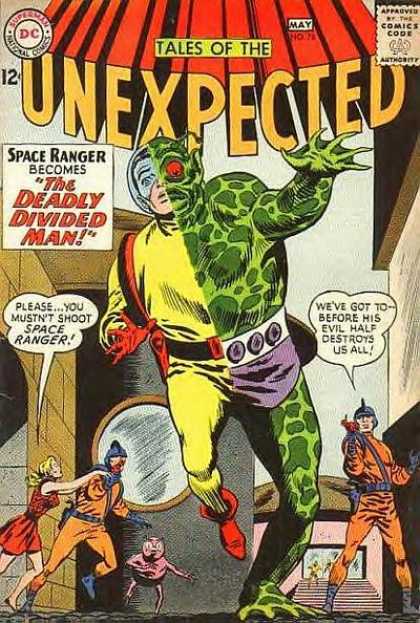
 A fascinating if somewhat downbeat review of James Miller’s new Examined Lives: From Socrates to Nietzsche appeared in this past weekend’s NY Times Book Review, containing more than a few gems about human nature and the search for meaning. In particular, the book details how various philosophers have negotiated, or failed to negotiate, the impossible gap between the ideal and the real (known to us as, well, sin) in their own lives. Lots of prime divided-self/Romans 7-material in here:
A fascinating if somewhat downbeat review of James Miller’s new Examined Lives: From Socrates to Nietzsche appeared in this past weekend’s NY Times Book Review, containing more than a few gems about human nature and the search for meaning. In particular, the book details how various philosophers have negotiated, or failed to negotiate, the impossible gap between the ideal and the real (known to us as, well, sin) in their own lives. Lots of prime divided-self/Romans 7-material in here:
If the proof of a pudding is in the eating, and the proof of a rule is in the exceptions, where should we look for the proof of a philosophy? For Friedrich Nietzsche, the answer was obvious: to test a philosophy, find out if you can live by it. This is “the only critique of a philosophy that is possible and that proves something,” he wrote in 1874. It’s also the form of critique that is generally overlooked in the philosophy faculties of universities. Nietzsche therefore dismissed the professional discipline as irrelevant, a “critique of words by means of other words,” and devoted himself to pursuing an idiosyncratic philosophical quest outside the academy.
Few readers will be astounded to learn that philosophers make as much of a mess of their lives as anyone else. But Miller, a professor of politics at the New School and author of a biography of Michel Foucault, among other books, does not rest with digging out petty failings or moments of hypocrisy. He shows us philosophers becoming ever more inclined to reflect on these failings, and suggests that this makes their lives more rather than less worth studying.
As Socrates himself said, “Don’t you think that actions are more reliable evidence than words?” The rest of “Examined Lives” can be read as a history of other philosophers’ failures to measure up to this ideal, either in their deaths or their lives.
One of Miller’s great transitional figures is the Roman court-philosopher Seneca. Living half a millennium after Socrates, he too was condemned to death by suicide. He accepted his fate with Socratic courage, but his death itself was difficult. He slit his wrists before begging for a cup of hemlock and retiring to a hot bath to expire. The messiness of his death reflected a morally messy life. For, while his writings promoted wisdom, balance, restraint and detachment, Seneca himself was forced into numerous compromises in the service of his protégé and employer, the murderous emperor Nero. He even helped Nero plot the murder of Agrippina, the emperor’s own mother. The strain was evident. “I am not wise,” Seneca wrote; “nor . . . shall I ever be.” Yet he also advised his favorite correspondent, Lucilius, to “harmonize talk with life.” As Miller remarks, Seneca was “in conflict” with himself.
Other philosophers suffered even more self-division, particularly those who succumbed to mental illness.
Miller concludes that his 12 philosophical lives offer a moral that is “neither simple nor uniformly edifying.” It amounts mainly to the idea that philosophy can offer little or no consolation, and that the examined life is, if anything, “harder and less potentially rewarding” for us than it was for Socrates.
Perhaps this is what still distinguishes the philosophical life: that “once in a lifetime” convulsion, in which one reinvents reality around oneself. It is a project doomed to fail, and compromises will always be made. But what, in life, could be more interesting?

COMMENTS
3 responses to “Nietzsche, Socrates, Seneca and The Philosopher’s Stone”
Leave a Reply














Thanks Dave. Nice piece.
By the way, speaking of these characters from ancient Greece and Rome, a totally riveting miniseries from the 1970s that not all of you may know about is I, Claudius.
Sex, murder, intrigue — and at turns heartbreaking, hilarious, and suspenseful. It was one of the first attempts to tell a long story with stunning acting and writing (and has not yet been surpassed). If you are a big fan of the TV renaissance of the last decade (The Wire, Deadwood, Mad Men, etc.) you have to take a look at it.
Plus it is a hugely pleasurable way to be exposed to a world set around the time of Christ.
I vividly remember watching I, Claudius with my dad as a child. Dad was an avid fan of Masterpiece Theatre, and if you wanted to watch TV on Sunday night, that was your one and only option. I complained at the time, but I know now that it sparked my lifelong love affair with the Costume Drama 🙂 I'd love to go back and watch it again, as an adult… Thanks for reminding me, Stampdawg.
This reminds me of an interesting observation made by Frank Schaeffer (son, not Francis, the more famous author). Schaeffer said that when he looked back on his life he realized that some of the best decisions he ever made in his life (getting married) were the least rational. As someone who has done a lot of self examination in a not-too-long life certain the examined life often seems not more worth living than the unexamined one as Ecclesiastes so eloquently puts it.